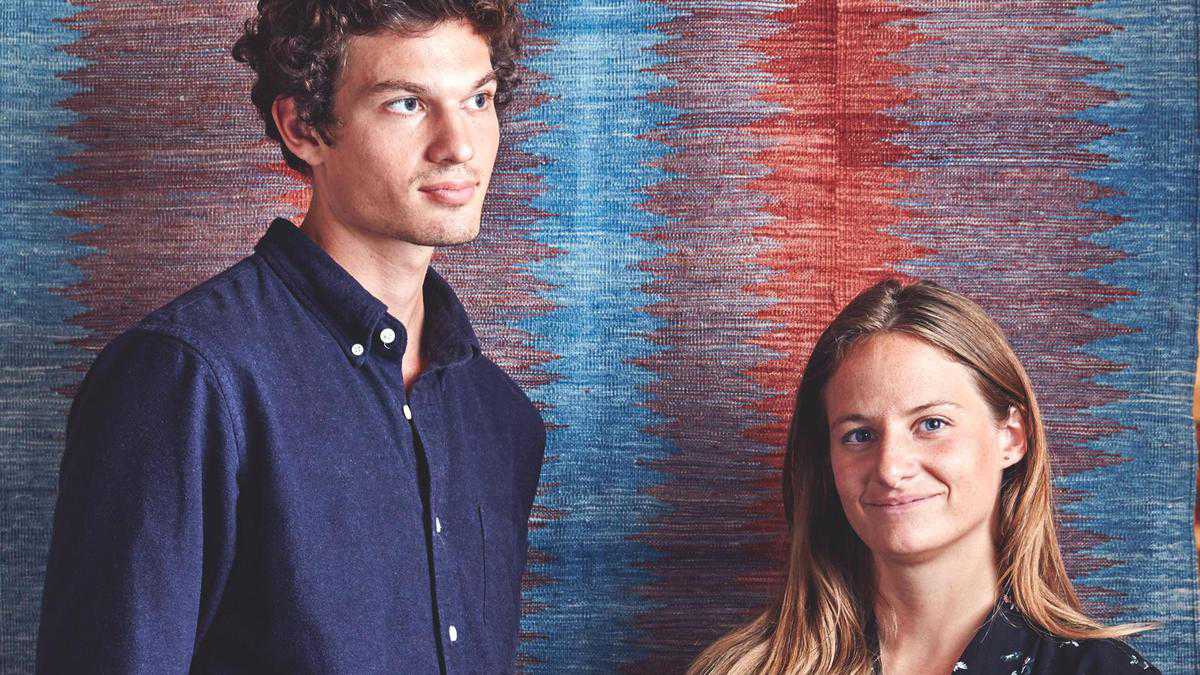Ishkar: How two former UAE residents are offering artisans found in war-torn countries a global market
14 March, 2021

If you’ve visited a foreign region, and felt like you’ve left a bit of yourself behind, you’ll connect with Edmund le Brun and Flore de Taisne.
The duo met while working in Kabul, Afghanistan, Brun with NGO Turquoise Mountain and de Taisne as a consultant for aid agencies. However, when they left, they quickly got frustrated with how the remaining world perceived the united states that they had come to love.
“People had this notion that it was a good deserted place with little culture and history which was not a good reflection of the united states at all. We wished to launch a business that would modification all that,” says Brun.
The duo brainstormed methods to show how in a position and multifaceted these countries are - that was how Ishkar, an on line market for artisans surviving in war-torn contries, was created.
The name is derived from a plant found in the deserts of Northern Afghanistan that, when burnt, turns into a substance that can be utilised to create dyes more vibrant. “It’s an emblem of how something that looks normal could have extraordinary homes when you utilize it right,” explains Brun.
Among the first items Ishkar started working with were hand-blown eyeglasses that were made by artisans found in Afghanistan for more than 2,000 years. While there have been a large number of workshops creating the products in the past, the duo were just able to find one artisan who nonetheless achieved it, and ordered 5,000 spectacles from him “to achieve the industry going again.”
“It’s one of our core goods, and just about the most preferred. No two glasses are the same,” says Brun.
That was in 2016. In the years that adopted, Ishkar features branched out and sells a variety of items - jewellery from Kabul to homeware from Pakistan to handle masks from Somalia.
“Each product tells a tale about the individual who managed to get, where it originates from, what’s unique about any of it. Not a lot of people have the ability to source items from the same places. If you check out trade fairs, you’ll get that these countries tend to be underrepresented.”
Ishkar currently sources products from Afghanistan, Pakistan, Yemen, Syria, Lebanon, Burkina Faso and Myanmar. Brun cites brass lights from Yemen and jewellery made by Saeeda Etebari, a deaf Afghani artisan as types of their bestsellers.
Brun and Taisne moved to the UAE found in May 2019 to raised handle the international organization before leaving for London in March 2020. They possess since as well launched a brick-and-mortar space in London.
Meanwhile, the company aims to greatly help artisans by not merely giving them usage of a global market but also by investing in from their website at an above-market charge. “We work like a retail organization on most aspects. However the idea has always been to help artisans which may have lost their industry due to reasons like war.”
The initiative became even more important through the pandemic with tourism slowing across the world, and affecting the livelihood of a large number of artisans who depended onto it to market their goods. “Interestingly, our sales have doubled last year which I think is an outcome of people spending additional time at home, taking into consideration the interiors of their house,” says Brun.
In 2019, the founders launched another arm of their business - a travel enterprise that took persons to offbeat countries to change their perceptions about the spots. While Brun admits that the timing was inconvenient (the travel aspect were only available in November 2019, right before the pandemic arose) he stands by its start.
“We don’t think about Ishkar as a single brand. You want to be regarded as more like a magazine in a few respects which is why we as well create videos on these places and have a blog. Probably in the future we can have an archive label. We are influenced by what we take pleasure in and that is to tell fair testimonies of the countries - and you can’t do this through anybody medium.”
The company had two trips to Afghanistan prior to the pandemic made travel impossible in 2020. They restarted their tours in 2021, with their initial getting to the Democratic Republic of Congo in February. They have approaching trips to Pakistan in May and Yemen later in the year.
According to Brun, the best part about taking the street less travelled, quite basically, is that it creates for more real experiences.
“The world is becoming very flat in ways - you can visit a tourist hotspot and they have already exercised what tourists want to see and travel is becoming increasingly bland as a result of that. It’s generally the same accommodations, same foods, same offerings.
“But countries which may have been at war don’t have that structure. Tourism isn’t a major part of their economy so they aren’t hoping to second do you know what tourists desire and the result is a more unique experience.
“Among the first issues you’ll come across when you check out these spots is the fact that they are affected by battle is merely the smallest the main whole knowledge,” he says.
Source: www.thenationalnews.com
TAG(s):
